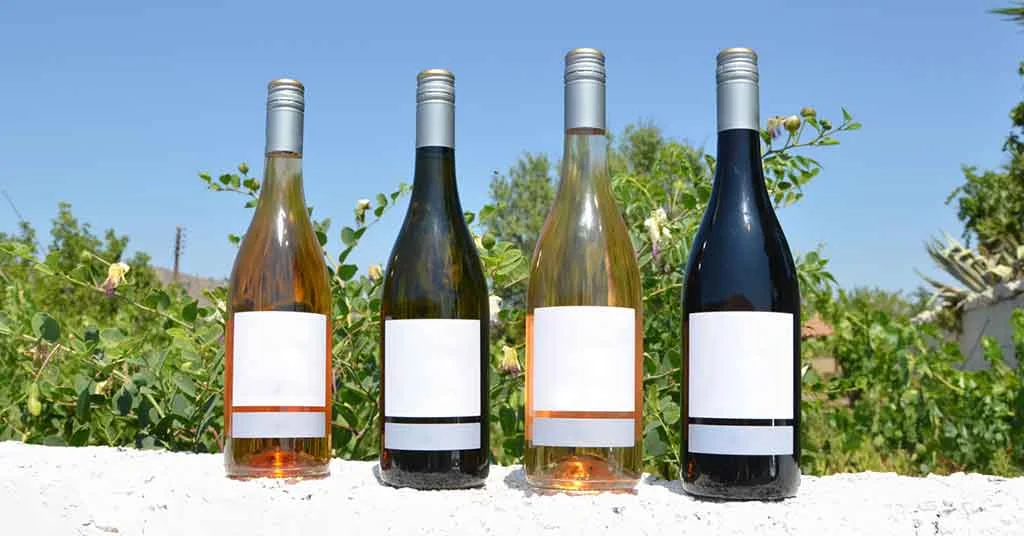Welcome To ChemAnalyst

Amcor Rigid Packaging (ARP) has entered into a strategic collaboration with Ron Rubin Winery, introducing a pioneering product named "Blue Bin." This innovative creation marks a significant milestone in the realm of premium wine, presenting a 750mL bottle crafted entirely from 100 percent recycled PET (rPET) plastic. With its unveiling in the United States, this partnership underscores a joint commitment to sustainable practices and environmental conservation.
The central objective of this collaboration is to foreground the environmental advantages inherent in utilizing PET, particularly when juxtaposed with conventional wine packaging materials. Headquartered in Ann Arbor, Michigan, Amcor is keen to emphasize the multifaceted ecological benefits associated with the PET-based bottles that house the Blue Bin wine. This advancement is anticipated to contribute substantially to the reduction of greenhouse gas emissions, mitigate global warming impact, and alleviate various environmental repercussions associated with conventional packaging.
Moreover, the utilization of PET material imbues the Blue Bin bottles with several valuable properties. Notably, these bottles are characterized by their lightweight nature and shatterproof resilience. This attribute endows wine aficionados with the liberty to relish the premium wine in a diverse array of settings that were previously deemed unsuitable, including idyllic beach escapes, poolside lounges, serene camping retreats, and various other outdoor leisure pursuits.
The ecological significance of this collaboration resonates particularly in the context of the carbon footprint attributed to traditional glass wine bottles. A staggering 30 percent of the total carbon footprint of wine products emanates from the production and usage of glass bottles. The innovative adoption of PET-based wine bottles presents a compelling solution, as these bottles are approximately 85 percent lighter than their glass counterparts and contribute to a mere one-third of the greenhouse gas emissions.
Ron Rubin Winery, situated in the picturesque landscape of Sebastopol, California, embarked on an exhaustive two-year investigation into various wine packaging alternatives. This meticulous evaluation paved the way for the conceptualization and realization of the Blue Bin concept. A distinctive and crucial facet of the Blue Bin bottles is the integration of Plasmax technology, a transformative innovation that incorporates a delicate glass layer within the PET bottle. This ingenious technology serves a dual purpose: firstly, it acts as a protective barrier that effectively segregates the wine from the rPET material, thereby preserving the wine's distinctive taste and unparalleled quality. Secondly, it reinforces the structural integrity of the PET bottle, ensuring a secure and robust packaging solution.
Jonathan Jarman, who occupies the role of Marketing Manager for Spirits and Wine at Amcor Rigid Packaging, expounded upon the technological marvel of Plasmax. He elucidated, "Plasmax functions as a sophisticated oxygen barrier, akin to the delicate attributes of glass. This barrier, nestled within the interior of the bottle, adeptly safeguards the inherent essence of the wine, all the while the PET bottle maintains its structural integrity."
Presently, the culmination of this partnership is manifested in the form of Blue Bin, a product that showcases a repertoire of four varietals from the illustrious 2022 vintage. These varietals encompass Vin Rosé, Pinot Grigio, Chardonnay, and Sauvignon Blanc, thereby catering to a diverse palate of wine connoisseurs.
The introduction of Blue Bin represents an impressive breakthrough in the domain of sustainable wine packaging. Beyond its immediate commercial implications, this innovation serves as a testament to the collective commitment to environmental stewardship and responsible practices within the wine industry. The strategic use of PET-based solutions has the potential to revolutionize conventional packaging norms, prompting a transformative shift towards sustainable and ecologically conscious packaging practices.
We use cookies to deliver the best possible experience on our website. To learn more, visit our Privacy Policy. By continuing to use this site or by closing this box, you consent to our use of cookies. More info.
